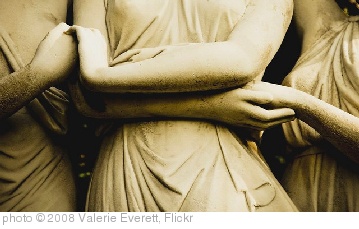http://rachelheldevans.com/daughters-will-prophesy
by Rachel Held Evans
December 13, 2011
by Rachel Held Evans
December 13, 2011
“Whoever welcomes a prophet as a prophet will receive a prophet’s reward, and whoever welcomes a righteous person as a righteous person will receive a righteous person’s reward. - Jesus, Matthew 10:41
Josiah became king of Israel when he was just eight years old.
Described as Israel’s last good king, he reigned for thirty-one years during a final period of peace before the Babylonian exile. About halfway through his reign, Josiah learns that the long-lost Book of the Law—the Torah— has been discovered in the temple. Upon hearing the words of the Torah read aloud, Josiah tears his robes in repentance and summons a prophet, for he sees how far Israel has strayed from God’s ways.
Contemporaries of Josiah included the famed prophets Jeremiah, Zephaniah, Nahum, and Habakkuk—all of whom have books of the Bible named after them. But Josiah did not choose any of those men. Instead he chose Huldah, a woman and prophet who lived in Jerusalem. “Huldah is not chosen because no men were available,” writes Scot McKnight, “she is chosen because she is truly exceptional among the prophets.”
Huldah first confirms the scroll’s authenticity and then tells Josiah that the disobedience of Israel will indeed lead to its destruction, but that Josiah himself would die in peace. Thus, Huldah not only interpreted but also authorized the document that would become the core of Jewish and Christian scripture. Her prophecy was fulfilled thirty-five years later (2 Kings 22).
The Bible identifies ten such female prophets in the Old and New Testaments: Miriam, Deborah, Huldah, Noadiah, Isaiah’s wife, Anna, and the four daughters of Philip. In addition, women like Rachel, Hannah, Abigail, Elisabeth, and Mary are described as having prophetic visions about the future of their children, the destiny of nations, and the coming Messiah.
When the Holy Spirit descended upon the first Christians at Pentecost, Peter draws from the words of the prophet Joel to describe what has happened:
Your sons and daughters will prophesy,
Your young men will see visions,
Your old men will dream dreams.
Even on my servants, both men and women,
I will pour out my Spirit in those days,
And they will prophesy (Acts 2:17-18)
Your young men will see visions,
Your old men will dream dreams.
Even on my servants, both men and women,
I will pour out my Spirit in those days,
And they will prophesy (Acts 2:17-18)
The breaking in of the new creation after Christ’s resurrection unleashed a cacophony of new prophetic voices, and apparently, prophesying among women was such a common activity in the early church that Paul had to remind women to cover their heads when they did it. While some may try to downplay biblical examples of female disciples, deacons, preachers, leaders and apostles, no one can deny the Bible’s long tradition of prophetic feminine vision.
I believe that right now, we need that prophetic vision more than ever.
Right now, 30,000 children die every day from preventable disease.
Right now 3 million women and girls are enslaved in the sex trade.
Right now a woman dies in childbirth every minute.
Right now, women age 15-44 are more likely to be maimed or to die from male violence than from cancer, malaria, traffic accidents, and war combined.
Meanwhile, the evangelical church has busied itself with endless debates about the “appropriate roles” of women in the church and complaints about the supposed “feminization of the Church,” as if women are no longer needed for the Kingdom, as if we’ve stepped outside our bounds. Meanwhile, churches are spending years debating whether a female missionary should be allowed to speak on a Sunday morning, whether students older than ten should have female Sunday school teachers, whether women should be allowed to read from Scripture in a church service, whether girls should be encouraged to attend seminary, whether women should be permitted to collect the offering or write the church newsletter or make an announcement. Those of us who are perhaps most equipped to speak and act prophetically in response to the violence, poverty, and inequality that plague our sisters around the world are being silenced ourselves.
Folks who see the leadership of women like Huldah and Junia as special exceptions for times of great need are oblivious to the world in which we live. Those who think the urgency of Pentecost has passed are deluding themsleves. They “have eyes to see but do not see and ears to hear but do not hear.”
Women around the world need the voices of all their sisters to cry out in one accord.
I’m with Sarah on this one. We cannot afford to wait for permission to make change; women themselves must be the change.
So, ladies—speak out.
Preach.
Prophecy.
Stand with your sisters.
Change the world.
And if a man ever tries to use the Bible as a weapon against you to keep you from speaking the truth, just throw on a head covering and tell him that you’re prophesying, just like the Bible says you can do.
To those who will not accept us as preachers, we will have to become prophets.

No comments:
Post a Comment